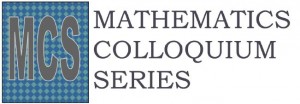NSU Newsroom
SharkBytes
Horizons
This version of NSU News has been archived as of February 28, 2019. To search through archived articles, visit nova.edu/search. To access the new version of NSU News, visit news.nova.edu.
This version of SharkBytes has been archived as of February 28, 2019. To search through archived articles, visit nova.edu/search. To access the new version of SharkBytes, visit sharkbytes.nova.edu.
Student to Present Research on Immune Response in Math Colloquium Talk, Apr. 20
 Adam Abdulhafid, a student with a Biology major in the Farquhar College of Arts and Sciences, will discuss his research on “A B-Cell-Driven Model of Antibody Response in an Immunocompromised System,” as part of the Mathematics Colloquium Series, hosted by the College’s Division of Math, Science, and Technology.
Adam Abdulhafid, a student with a Biology major in the Farquhar College of Arts and Sciences, will discuss his research on “A B-Cell-Driven Model of Antibody Response in an Immunocompromised System,” as part of the Mathematics Colloquium Series, hosted by the College’s Division of Math, Science, and Technology.
Friday, Apr. 20
Noon–1:00 p.m.
Mailman-Hollywood Building | Room 310
About the Research
There are many ways in which the body responds to infections. The collective response of the innate and adaptive immune responses is called the immune response. The adaptive response—which controls infections and prevents recurring disease—is more sophisticated and requires greater study to understand. One of the main adaptive responses is the antibody response that can bind to virions (virus particles) and prevents them from infecting cells. Most studies of infection are done based on a single infectious agent and how it interacts with the immune system. In many cases, there are multiple infections that must be repelled by the immune system at any given time.
In this study, Abdulhafid mathematically modeled the dynamics of antibody response in an immunocompromised system. He studied how immunocompromised patients, such as pregnant women and pediatrics perinatally infected with HIV, will respond to new infections. In particular, Abdulhafid studied an infection of swine influenza (H1N1) on the system. The model was used to explore the different ways in which the mechanisms of antibody response are affected by different levels of immune suppression. These states of immune suppression were compared with the normal, or immunocompetent, state to determine the disparity in response. The model’s validity was tested with a data set from a cohort of immunocompromised patients.
Abdulhafid conducted the research with faculty adviser Evan Haskell, Ph.D., associate professor in the college.
The Mathematics Colloquium Series aims to increase awareness of mathematics’ importance and applications in daily life. The series also gives mathematics faculty members and students the opportunity to discuss independent research and share their passion for the subject. These talks are free and open to the public.
For more information on this lecture or the series, contact Vehbi Paksoy, Ph.D., or Iuliana Stanculescu, Ph.D., assistant professors in the Farquhar College of Arts and Sciences.